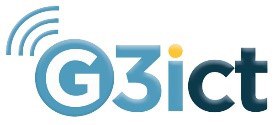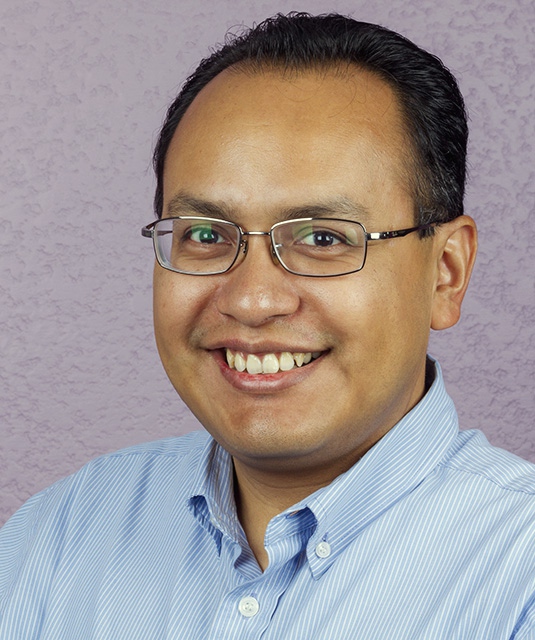Persons with Disabilities’ Leadership and Digital Inclusion: G3ict’s Position and Strategic Approach
Posted on February 18, 2025

Director of Advocacy and Capacity Building, G3ict
The recognition of persons with disabilities’ right to leadership reflects a central principle within the global disability community. For disability rights advocates, leadership entails ensuring that persons with disabilities are granted the opportunity to participate in dialogues and decision-making processes concerning their issues, “nothing about us without us.” Additionally, it involves guaranteeing their representation in all relevant proceedings on all levels “local, national, regional, and global.”
The right to leadership has been a key demand of the global disability movement since the recognition of the World Decade on Disability (1983 – 1993). This demand was further solidified during the negotiations leading to the adoption of the Convention on the Rights of Persons with Disabilities (CRPD) by the United Nations General Assembly on December 12th, 2006. Moreover, the right to leadership is explicitly recognized through articles 4.3[1], 32.1[2]and 33.3[3] of the Convention. Acknowledging that the leadership role of persons with disabilities and their organizations is a matter of human rights has significantly advanced the fulfillment of the remaining CRPD articles i.e., the rights of persons with disabilities at all sectors and levels.
The right to digital accessibility is considered one of the key themes of interest for many disabilities rights advocates around the world. Over more than a decade now, Article 9 of the CRPD on accessibility has been a central source of guidance for many digital inclusion advocates.
Promoting and implementing the disposition of the CRPD on digital inclusion for persons with disabilities is G3ict’s mission since its inception in 2006. As a digital inclusion advocacy organization, and in addition to its many other professional and advisory service programs, G3ict has shown a strong commitment to enhancing and leveraging opportunities of leadership for persons with disabilities in the field of digital inclusion. This commitment has been realized throughout programs, such as the G3ict CRPD ICT Accessibility Progress Reports (between the years 2012 and 2018), which have been later developed to form the worldwide recognized data collection tool Digital Accessibility Rights Evaluation (DARE) Index. Motivated by its high recognition of leadership of persons with disabilities and their organizations, G3ict ensured that the DARE Index would be developed in partnership with two major international organizations of persons with disabilities through the launching of the Decennial Call for Action on Digital Inclusion in 2016 aimed at promoting digital inclusion of persons with disabilities in collaboration with Disabled People’s International (DPI) and the International Disability Alliance (IDA).
The DARE Index is a resource built by advocates for advocates. It draws on the extensive knowledge, experiences, and insights of organizations representing persons with disabilities. By engaging these advocates in the development process, the DARE Index ensures that it reflects the real-world challenges and advancements in disability rights and accessibility. This collaborative effort not only enhances the index's authenticity but also empowers those who are at the forefront of advocating for change, providing them with a powerful tool to further their mission. Among the numerous topics covered by the DARE Index[4], digital inclusion and the leadership of persons with disabilities stand out as crucial issues. These aspects are evaluated through twenty questions to assess governments' commitment to fulfilling the rights of persons with disabilities, in alignment with the CRPD.
According to G3ict, leadership, as far as issues of digital inclusion are concerned, ought to be reflected through the participation of persons with disabilities in decision-making and representation at national disability councils and national technology entities[5]. These two types of national bodies, for G3ict, are essential national policy and program development platforms for persons with disabilities to express their voices for promoting issues of digital inclusion and ICT accessibility. Both quantitative and qualitative data collected for the recent DARE Index in 2020 reflects an exceptionally low percentage of inclusion of persons with disabilities in decision-making related to national technology policies and programs.
Through its engagement with and observation of the overall context of digital inclusion of persons with disabilities, G3ict came to recognize that many factors sit behind the lack of substantial leadership opportunities of persons with disabilities in this field. Whether it is:
- The lack of education programs on digital inclusion,
- The weak digital inclusion policies and infrastructure, particularly in developing countries and remote areas,
- The expensive and unaffordable assistive technologies and digital accessibility related software,
- The unavailability of sufficient subsidy and incentive-based programs for promoting digital inclusion in many countries.
- These are all factors that create major roadblocks that necessarily hinder persons with disabilities from playing leadership roles around issues of digital inclusion and accessibility rights. To leverage leadership opportunities for persons with disabilities, G3ict has implemented innovative strategies and programs that:
- Offer dynamic multi-stakeholder platforms of dialogue for persons with disabilities, digital accessibility practitioners, policy-makers and private sector through its flagship annual event, the M-Enabling Summit, and other global events,
- Provide digital accessibility advocates and professionals with extensive accessibility resources in education, certification, and scholarship offerings through its International Association of Accessibility Professionals (IAAP) and the Digital Accessibility Rights Education (DARE) Academy,
- Engage a broad array of digital accessibility advocates and practitioners with disabilities through its global advisory services (Global Advisory Center), and
- Last but not least, create collaboration opportunities with representatives of regional and international organizations of persons with disabilities in its advocacy campaigns, particularly its recently formed Digital Accessibility Policy, Guidelines, and Standards Harmonization Work Group[6] (DASH-WG) that has played a pivotal leadership role in the negotiations leading to the adoption of the Global Digital Compat (GDC) by the United Nations General Assembly during the Summit of the Future held in September 2024.
Five years have passed since the publication of the second edition of G3ict’s DARE Index in 2020. During this time, the number of countries ratifying the CRPD has risen to 191. Rapid and significant technological advancements have occurred, with emerging technologies such as artificial intelligence taking center stage in innovation and discussion. The recognition of technology's role in ensuring life opportunities has grown, particularly in the wake of the COVID-19 pandemic. With the upcoming third edition of G3ict’s DARE Index in 2025, the hope is that leadership opportunities for persons with disabilities in the field of digital inclusion have expanded. To support this goal, G3ict remains committed to enhancing the leadership role of persons with disabilities and their organizations through its ongoing educational and professional development programs, as well as its advocacy campaigns and efforts.
Footnote
[1] Article 4.3: In the development and implementation of legislation and policies to implement the present Convention, and in other decision-making processes concerning issues relating to persons with disabilities, States Parties shall closely consult with and actively involve persons with disabilities, including children with disabilities, through their representative organizations.
[2]Article 32.1: States Parties recognize the importance of international cooperation and its promotion, in support of national efforts for the realization of the purpose and objectives of the present Convention and will undertake appropriate and effective measures in this regard, between and among States and, as appropriate, in partnership with relevant international and regional organizations and civil society, in particular organizations of persons with disabilities.
[3] Article 33.3: Civil society, in particular persons with disabilities and their representative organizations, shall be involved and participate fully in the monitoring process.
[4]DARE Index 2020 has Targeting 137 countries that include 90 percent of world populations, and covering 93 percent of CRPD ratifying countries (182 in 2020)
[5] To learn about the related results, Please read: G3ict-Research-Supporting-Qualitative-Country-Data-Shared-by-Respondents-Oct2021.pdf
[6] Mr. Marc Workman, World Blind Union (WBU) CEO is DASH Work Group Co-Chair




























